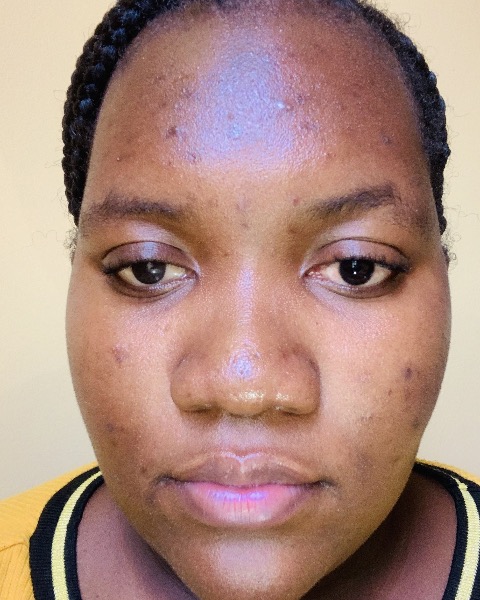Mental Health
Category: Abstract Submission
Mental Health II
538 - Expressed psychosocial needs in youth living with HIV in Botswana
Monday, April 25, 2022
3:30 PM - 6:00 PM US MT
Poster Number: 538
Publication Number: 538.423
Publication Number: 538.423
Ngwao Ngwako, University of Botswana Faculty of medicine, Bobonong, North-East, Botswana; Kealeboga M. Morapedi, Botswana-UPenn Partnership, Gaborone, South-East, Botswana; Fionah Q. Mhaphi, Botswana Upenn Partnership, Gaborone, South-East, Botswana; Ontibile Tshume, Botswana -Baylor Children's Clinical Center Of Excellence, Gaborone, South-East, Botswana; Onkemetse Phoi, Botswana Baylor Clinical centre of Excellence, Gaborone, South-East, Botswana; Mogomotsi Matshaba, Baylor College of Medicine, Gaborone, South-East, Botswana; Elizabeth D. Lowenthal, Perelman School of Medicine at the University of Pennsylvania, Philadelphia, PA, United States; Victoria Miller, Children's Hospital of Philadelphia, Philadelphia, PA, United States; Merrian J. Brooks, Children’s Hospital of Philadelphia, Philadelphia, PA, United States

Ngwao Ngwako, Medical Student
Year 4 Medical Student
University of Botswana Faculty of medicine
Bobonong, North-East, Botswana
Presenting Author(s)
Background:
Introduction: Botswana has one of the world’s highest rates of HIV in youth age 11 to 25 years. Up to one in every three of these youth have symptoms of mental illnesses but a small proportion of these youth living with HIV (YLWH) seek professional mental healthcare. Most existing psychosocial interventions for YLWH focus on providing them with ART adherence-related counseling, presuming HIV related concerns are primary. Rarely are YLWH asked what their salient psychosocial needs are.
Objective: We explore the types of concerns which YLWH report needing support in their daily lives.
Design/Methods: This qualitative study was a secondary data analysis of records from a pilot of a youth led lay counselor-based intervention study in Botswana, called Safe Haven, targeting YLWH with comorbid symptoms of depression. This was based on the Friendship Bench lay counselor problem solving therapy intervention from Zimbabwe. There were 8 lay counsellors and 46 youth participants. Each client had 1-6 sessions with a lay counsellor over 7 months between 11/2019 and 7/2021. Post session summary forms were anonymized and problems listed were extracted; two members of the research team created seven codes after first review. These codes were then applied by two coders with sub-codes created deductively; discrepancies were adjudicated by a third party until consensus.
Results: There were a total of 176 sessions with post session forms and seven categories of problems identified from 46 participants (61% were females; 13-25 years old). The most common problem mentioned (31% of the sample) was family social matters, such as witness of gender-based violence and alcoholism. One in four types of problem was related to education (e.g., poor grades). The third frequently mentioned type of challenge (20%) was emotional matters, which included anger issues and response to bullying. Less frequently mentioned challenges included medical issues (HIV or other) (6%), relationship issues (6%), financial issues (5%), and self-HIV stigmatization (3%).Conclusion(s): Young people living with HIV experience problems that are not only related to HIV, but also to similar stressors as other youth. Given that family social matters were the most frequently mentioned, inclusion of family members in counseling sessions might be constructive. Initiatives that provide life skills like problem solving of everyday stressors or relational communication strategies could also address these needs. Data from this study will inform development of interventions that can address the complex needs of YLWH and co-morbid mental illness in Botswana and beyond.
Expressed psychosocial needs in youth living with HIV in Botswana.CV Ngwao Ngwako.pdf
Introduction: Botswana has one of the world’s highest rates of HIV in youth age 11 to 25 years. Up to one in every three of these youth have symptoms of mental illnesses but a small proportion of these youth living with HIV (YLWH) seek professional mental healthcare. Most existing psychosocial interventions for YLWH focus on providing them with ART adherence-related counseling, presuming HIV related concerns are primary. Rarely are YLWH asked what their salient psychosocial needs are.
Objective: We explore the types of concerns which YLWH report needing support in their daily lives.
Design/Methods: This qualitative study was a secondary data analysis of records from a pilot of a youth led lay counselor-based intervention study in Botswana, called Safe Haven, targeting YLWH with comorbid symptoms of depression. This was based on the Friendship Bench lay counselor problem solving therapy intervention from Zimbabwe. There were 8 lay counsellors and 46 youth participants. Each client had 1-6 sessions with a lay counsellor over 7 months between 11/2019 and 7/2021. Post session summary forms were anonymized and problems listed were extracted; two members of the research team created seven codes after first review. These codes were then applied by two coders with sub-codes created deductively; discrepancies were adjudicated by a third party until consensus.
Results: There were a total of 176 sessions with post session forms and seven categories of problems identified from 46 participants (61% were females; 13-25 years old). The most common problem mentioned (31% of the sample) was family social matters, such as witness of gender-based violence and alcoholism. One in four types of problem was related to education (e.g., poor grades). The third frequently mentioned type of challenge (20%) was emotional matters, which included anger issues and response to bullying. Less frequently mentioned challenges included medical issues (HIV or other) (6%), relationship issues (6%), financial issues (5%), and self-HIV stigmatization (3%).Conclusion(s): Young people living with HIV experience problems that are not only related to HIV, but also to similar stressors as other youth. Given that family social matters were the most frequently mentioned, inclusion of family members in counseling sessions might be constructive. Initiatives that provide life skills like problem solving of everyday stressors or relational communication strategies could also address these needs. Data from this study will inform development of interventions that can address the complex needs of YLWH and co-morbid mental illness in Botswana and beyond.
Expressed psychosocial needs in youth living with HIV in Botswana.CV Ngwao Ngwako.pdf
